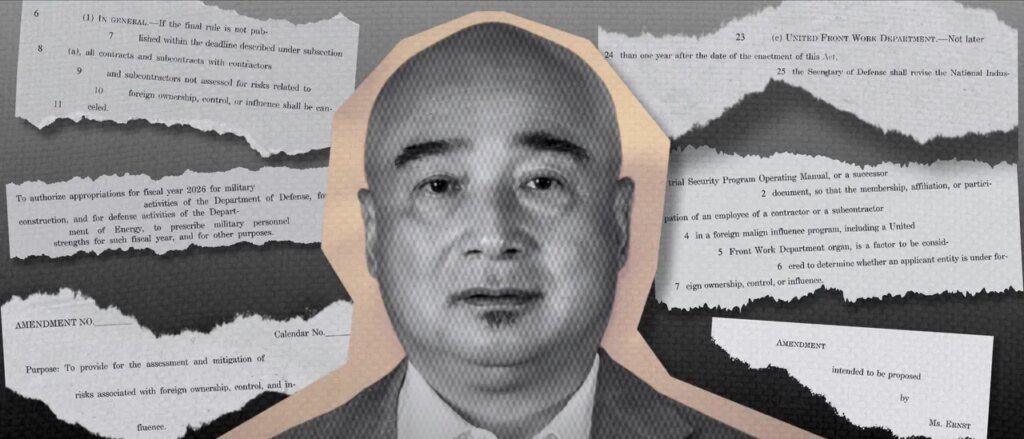A recent amendment to the 2026 National Defense Authorization Act (NDAA) mandates that the Department of Defense (DOD) exempt U.S. defense contractors from potential issues with China’s intelligence activities. This amendment, introduced by Republican Senator Joni Ernst from Iowa, allows the DOD a year to assess if any contractors have ties to the Chinese Communist Party (CCP) or any involvement with its United Front Work Department (UFWD). If the DOD fails to meet the assessment deadline, it risks invalidating contracts with those contractors—including any associated subcontractors—who haven’t been evaluated for foreign ownership or control risks.
In a letter to Secretary of Defense Pete Hegseth back in March 2025, Ernst urged the DOD to terminate a contract with the defense contractor S&L Aerospace Metals LLC. She expressed, “It is unacceptable that the Biden administration has failed to take common sense steps to protect American national security from spies. We know that foreign adversaries like China are trying to steal our technology. We can’t afford to make it easier for them.”
Ernst further noted that a rigorous review process for DOD contractors would enhance national security while maintaining America’s innovative edge. As it stands, the 2026 NDAA, which outlines the annual DOD budget, has moved past the committee stage and is heading for a vote in the Senate.
S&L, based in New York, has secured approximately $60 million in defense contracts for various military equipment. However, concerns have arisen as CEO Jerry Wang has been linked through Chinese state media records to multiple UFWD agencies.
The operations of the UFWD are described as intertwining intelligence efforts and public influence, aimed at shaping political landscapes and acquiring advanced foreign technology, according to the House Select Committee on the CCP.
Wang’s spokesperson has since denied any wrongdoing and clarified that he maintains no ties to foreign political entities, despite the DCNF’s inquiries regarding his affiliations. Interestingly, when questioned directly about particular images linked to the Chinese government, Wang’s lawyers didn’t deny the content of those images.
Some view Ernst’s amendments as a beneficial step, especially if previous efforts to ensure diligent reviews among defense contractors falter. Recently, the House Selection Committee on the CCP urged the DOD to fully enforce regulations outlined in the 2022 NDAA regarding contractor reviews, although these have faced significant delays, leaving U.S. defense industries susceptible to significant security threats.
Concerns have been raised regarding the DOD’s dependency on self-reporting for contractor assessments, which some experts argue will not adequately reveal compromised contractors. Ernst’s amendment, however, includes mechanisms for actively addressing risky contractors, offering a more systematic approach to safeguarding the defense supply chain from foreign influences.
As one analyst noted, “This amendment is crucial. It creates an obligation to assess and mitigate risks associated with foreign ties, rather than relying on contractors’ self-disclosures.” It seems to mark a pivotal shift toward securing a defense landscape that has increasingly come under scrutiny.







